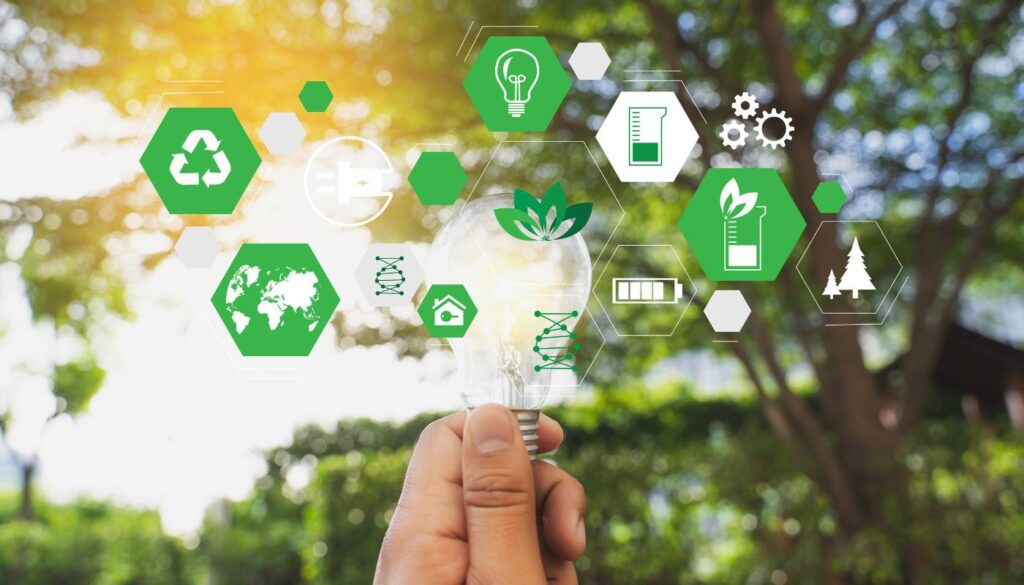Sustainability marketing is a very popular topic that can be defined as one of the least dangerous marketing actions or even as one which produces some kind of a positive outcome on the earth’s environments we depend on. Sustainable marketing is the marketing concept that has to do with meeting current generation needs while not exploiting the future generations basic needs. This is particularly the case given that numerous organizations are finding out that sustainable marketing has become a new area of marketing that many consumers are becoming aware of as they create their effects on the environment and society.
It can be noted that sustainable marketing concept has been viewed as having its roots in the environmentalism movement of the 196 and 1970s. Nevertheless, the idea did not start to develop until the late 1980s. In a study done in this paper, it is agreed that in 1989, an American marketing professor named Gerald S. Fain used the term sustainable marketing while writing an article about green marketing. In the subsequent one decade, more writings appeared addressing issues on how the practices of marketing could be done sustainably.
It is worth to knowing that the idea of sustainable marketing was previously identified by scholars as emerging and circulating more actively beginning with the year 2000. Some of the reasons that led to this change include: the increased concern towards the climatic change, rigid regulations from the governments and the consumer consciousness to buy eco-friendly products which are produced with socially sensitive ways. In response to the emerging global issues, Unilever, Patagonia, IKEA and many other companies have emerged as the leaders of sustainable marketing. Trade associations and nonprofits also started offering structures, standards and accreditation to promote sustainability. For example, the Sustainable Marketing Consortium was formed in 2011 to assist marketing professionals to integrate sustainability standards and indicators into their practices.
Today, the concept of sustainable marketing is not an exception, which was adopted by only the progressive companies. It is gradually gaining importance as a business necessity for all sizes of firms and across all sectors. In the same surveys, it is evident that 90% of consumers want businesses to have a social purpose of making profits while being socially and environmentally responsible. The biggest danger for brands that do not address sustainable development is customer loss and, consequently, lower earnings in the future. On the other hand, there are studies showing that authenticity of brands in reporting their sustainability initiatives can positively affect trust, brand attachment and ultimately sales.
In essence, sustainable marketing seeks to assess the impact of marketing strategies and actions on various stakeholder groups such as customers, employees, suppliers, distributors, retailers and local communities. It strives to minimize any negative effects while enhancing the positive effects as much as possible. This demands assessments based throughout the value chain which peruses tools such as life cycle assessments and systems thinking. There are four key pillars of a sustainable marketing strategy:There are four key pillars of a sustainable marketing strategy:
1. Sustainable Product Design and Packaging: Reducing the environmental cost of products and their packaging across their life cycle through decisions about materials from renewable or recycled sources, reducing toxins and waste, energy efficiency, and recyclability or biodegradability.
2. Responsible Supply Chains: Promoting decent work, human rights and sustainability at workplaces and across global supply chains. This ranges from procuring raw materials, production techniques and channels of distributing the final products.
3. Ethical Promotion and Customer Engagement: Electronic marketing and advertising that does not take advantage of the vulnerable groups in the society but is rather transparent, honest, and fair in its approaches. Enhancing customer awareness on sustainable consumption and promotion of sustainable consumption patterns and behaviours.
4. Broad Stakeholder Orientation: In this case, it involved the stakeholders, that is, the consumers, the company, its suppliers, stockholders, employees, and the community, environment, and the public. Capturing the marketing decisions that are in the best interest of the society.
The management of sustainable marketing involves everyone in the organization including the product development department, human resources, and facilities departments. This also requires commitment from the senior leadership to support the required change, shift the KPIs toward the longer-term sustainable performance, and possibly forgo short-term profits for the greater good.
Furthermore, sustainable marketing implementation will have a different appearance compared to the theoretical concept, based on the company’s specific context: industry, business model, brand positioning and target audience. Sustainable marketing is a strategic process rather than a set of tick-boxes of generic green and socially responsible marketing activities. It also demands dynamic adaptation as the needs of stakeholders, the capabilities of the company, and the rules and standards of sustainability change over time.
Frameworks and reporting initiatives such as the United Nations Sustainable Development Goals, Future-Fit Business Benchmark, and the Global Reporting Initiative offer structures that companies can use to determine their current sustainability performance, identify key areas that require attention, and compare their progress with that of their counterparts. For example, the extreme outdoor clothing company Patagonia widely promotes the B-Corp certification and Benefit Corporation legal status as a company to push itself and be responsible for the high levels of social and environmental responsibility in every business and communication strategy.
As sustainable marketing attains a certain level of maturity, there is growing scrutiny regarding accusations of greenwashing. Customers, regulators, and watchdog groups are slowly developing a sense of which companies are actually practicing sustainable management compared to those who are merely using the concept as a marketing tool without a systematic way of enforcing it. Consumers also pointed out that brands should provide more tangible evidence of the positive changes they are promoting through sustainable branding and messaging by using certification, reporting frameworks, and key performance indicators. The European Union is even coming up with a common framework to fight greenwash and enable companies to report their sustainable performance credibly.
In conclusion, sustainable marketing provides a perspective on how firms can pursue their profit-making objectives without compromising the requirements of global challenges like climate change, inequality, and ethical manufacturing. Pioneers have proved that social and environmental sustainability initiatives can spur innovation, enhance brand reputation and create new markets. With more and more organisations adopting stakeholder capitalism, there are indications that sustainable marketing will be the new normal accepted marketing practice in the following years. But to achieve this vision there will be need for transparency, accountability and a transformation mindset within the whole corporate realm.
Thus, sustainable marketing has a great potential to change the current trends in business management and contribute to the protection of natural environment, support of communities and increase of quality of life of different sensitive groups of people in the world. But there is still a long way to go to convert well-meaning plans into tangible successes on a large scale. True sustainability is a process, which has no end, but involves questioning and challenging, experimenting, and collaborating with different stakeholders to enhance constantly. Thus, while the objective may still be blurry, the path leads forward towards a more equitable, sustainable and restorative economy for all the beings on this planet.






